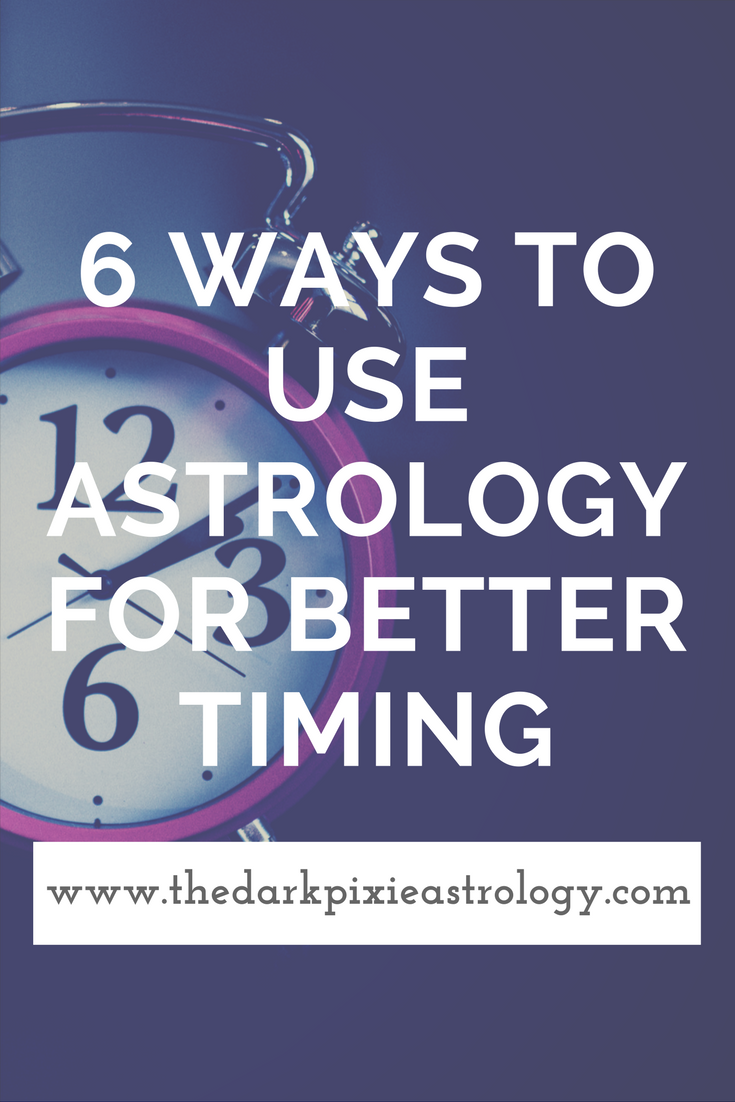|
Having better timing in life means you’re more likely to be in the right place at the right time, and less likely to get run over by a flying toilet (not sure where that visual came from . . .). Having better timing can help with pretty much everything in your life, and astrology can help you find the better timing you need. The focus is on predictive astrology, which focuses on the transit (moving) planets and how they impact your natal chart, as well as other charts used in prediction (like progressed charts and return charts). Using predictive astrology helps you determine when you’ll have good energy for certain things, and when you’ll have challenging energy, so you can plan accordingly, or at least prepare and react better. Make sure you're signed up for the free monthly worksheet so you can stay on top of the planets every month! Here are 6 predictive astrology focuses that can help you have better timing: 1. Transits
Transits involve the transit planets, and their aspects to your natal (and other) charts, as well as their movement through your natal houses.
There are 12 houses in a chart, each representing different areas of life and parts of your personality, and there are 10 planets, each with their own energy, so as the transit planets move through the houses, they bring their own energy to the parts of life the house rules. s they make aspects to your chart, they bring their own energy to whatever they aspect, and the aspect itself can determine if it’s beneficial or challenging. 2. New & Full Moons and Eclipses
New moons occur when the transit Sun and Moon are in the same spot, and full moon occur when they oppose one another. Eclipses occur with new and full moons, and are when they’re within a certain distance of the lunar nodes (the points where the Moon’s orbit crosses the ecliptic).
New moons and solar eclipses are times of new beginnings, while full moons and lunar eclipses are times of endings. By following the new and full moons and eclipses, the signs they occur in, the houses they occur in with your natal chart, and the aspects they’ll make to your natal chart, you can get a better idea of the best times to start and to finish. 3. Progressions
The progressed chart adds one day to your date of birth for every year you’ve been alive to create a new chart that reflects your maturation and growth with age.
This chart can be used to show changes in your personality and life as you get older when the progressed planets change signs or houses, progressed houses change signs, progressed planets or houses come to critical degrees, and more. Progressions should be considered with transits when you’re using predictive astrology (at least as you go along, beginners may get confused by progressions initially, but intermediate and advanced students should absolutely use them). 4. Returns
A return occurs when a transit planet returns to the exact location it was at when you were born, and a chart can be created for that moment which shows how the return impacts you. Often, important events can occur around a return related to the return planet since they signal the start of a new return period.
5. Electionals
Electional astrology is a little different than the above because you don’t need to use the natal chart. Instead, you strive to find the most opportune time for an event to occur based on charts created for the moment of the event.
Electional astrology is helpful when you don’t know your time of birth (as many don’t) but still want to be able to use predictive astrology for timing. You can use electional astrology for planning first dates, taking tests, asking for a promotion, applying for a loan, having a wedding, etc. 6. Mundane
Mundane astrology is also a little different because it focused on the transit planets on their own, without specific impact to your own chart. As the planets move through new signs, make aspects to one another, or impact charts for cities, countries, and organizations, they have a broad impact on all of us.
Mundane astrology requires no personal birth data since you don’t base it on your own chart at all, but by studying the general impact of astrological occurrences, you can improve your own timing. Suggested Reading: Timing & Astrology Comments are closed.
|
|




 RSS Feed
RSS Feed
